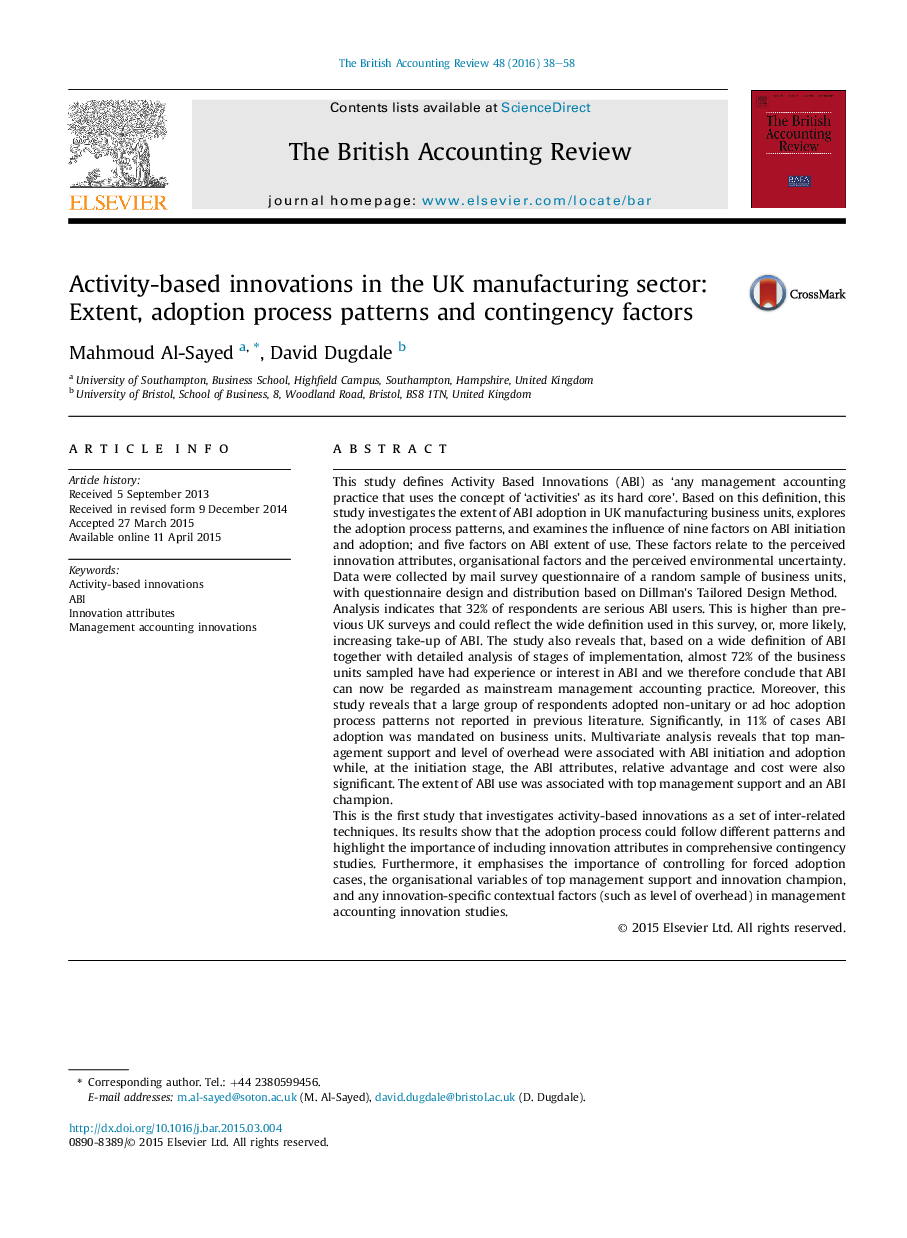| Article ID | Journal | Published Year | Pages | File Type |
|---|---|---|---|---|
| 1003937 | The British Accounting Review | 2016 | 21 Pages |
This study defines Activity Based Innovations (ABI) as ‘any management accounting practice that uses the concept of ‘activities’ as its hard core’. Based on this definition, this study investigates the extent of ABI adoption in UK manufacturing business units, explores the adoption process patterns, and examines the influence of nine factors on ABI initiation and adoption; and five factors on ABI extent of use. These factors relate to the perceived innovation attributes, organisational factors and the perceived environmental uncertainty. Data were collected by mail survey questionnaire of a random sample of business units, with questionnaire design and distribution based on Dillman's Tailored Design Method.Analysis indicates that 32% of respondents are serious ABI users. This is higher than previous UK surveys and could reflect the wide definition used in this survey, or, more likely, increasing take-up of ABI. The study also reveals that, based on a wide definition of ABI together with detailed analysis of stages of implementation, almost 72% of the business units sampled have had experience or interest in ABI and we therefore conclude that ABI can now be regarded as mainstream management accounting practice. Moreover, this study reveals that a large group of respondents adopted non-unitary or ad hoc adoption process patterns not reported in previous literature. Significantly, in 11% of cases ABI adoption was mandated on business units. Multivariate analysis reveals that top management support and level of overhead were associated with ABI initiation and adoption while, at the initiation stage, the ABI attributes, relative advantage and cost were also significant. The extent of ABI use was associated with top management support and an ABI champion.This is the first study that investigates activity-based innovations as a set of inter-related techniques. Its results show that the adoption process could follow different patterns and highlight the importance of including innovation attributes in comprehensive contingency studies. Furthermore, it emphasises the importance of controlling for forced adoption cases, the organisational variables of top management support and innovation champion, and any innovation-specific contextual factors (such as level of overhead) in management accounting innovation studies.
